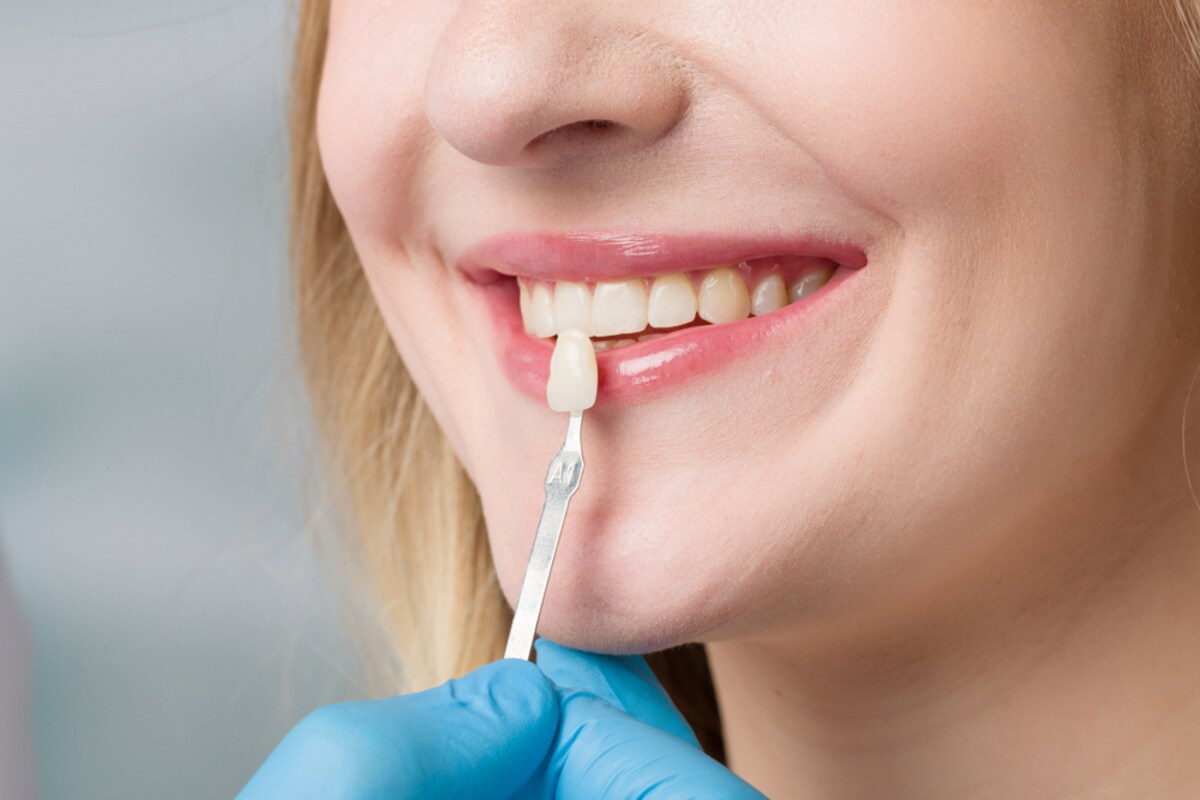A bright, uniform smile can make a great first impression. If you have chipped, stained or uneven teeth, porcelain veneers can give you a quick and dramatic change. However, most people wonder whether porcelain veneers will adversely affect their long-term oral health.
We understand that feeling doubtful about changing your natural teeth permanently can make you feel anxious, and the thought of removing enamel may cause worries about sensitivity, damage or complications down the road.
In this blog, we will look at the facts about porcelain veneers in Kitchener to give you an understanding of the benefits, risks, and safety of veneers to help you make a well-informed decision with confidence.
What Are Porcelain Veneers and How Do They Work?
Porcelain veneers are thin, custom-made shells that are bonded to the front surface of your teeth and are used to improve the overall appearance of your mouth. It solves concerns like discoloured teeth, slightly crooked, chipped or oddly shaped teeth.
A dentist will follow the below steps while treating you with Porcelain Veneers:
- They will remove a thin layer of enamel on the front of each tooth
- Take impressions to make custom-fit veneers.
- Lastly, they will bond the veneers to your teeth with the help of dental cement.
Veneers provide a natural and long-lasting solution as they last between 10 to 15 years if proper maintenance is done, but remember veneers cannot be undone once they are placed.
Are Porcelain Veneers Safe?
Generally speaking, ceramics and porcelain are a safe and effective form of aesthetic dentistry when performed by a specially trained dentist. Porcelain veneers are well-accepted in aesthetic dental procedures and have helped a considerable number of individuals improve their smiles.
However, safety depends on several factors:
- The health of your natural teeth and gums
- Proper enamel reduction
- Long-term care and maintenance
- The experience of your dentist in Kitchener
Problems are more likely if veneers are applied without proper examination or planning.
Do Veneers Damage Teeth?
Veneers don’t harm teeth in the placement process when done appropriately, but veneers do compromise a small amount of enamel, the outside protective layer of your tooth. A dentist removes enamel to ensure a proper fit and look natural.
Although this doesn’t “hurt” the tooth, it does make the change irreversible. The tooth will always need some protection, either from another veneer or some other restoration in the future.
What Are the Risks of Porcelain Veneers?
Before making a decision, it is important to understand the risks associated with porcelain veneers. The most common risks are as follows:
- Loss of enamel can lead to tooth sensitivity
- Chipping or cracking of the veneer can occur if not properly cared for
- Gum irritation if they do not fit properly
- Color mismatch can occur when the veneers change over time compared to the surrounding teeth
- Little to no chance of reversing the procedure, as enamel can not be replaced
Being aware of these risks can help you minimize them by consulting a dentist near you and simply maintaining proper oral hygiene.
Side Effects of Dental Veneers
There can be some short-term side effects of dental veneers, especially after the procedure:
- Increased tooth sensitivity to hot or cold
- Minor soreness in the gums
- Initial discomfort when chewing or speaking
- Temporary pressure or tightness in the jaw
Remember, most of these side effects go away on their own within a few days to a week. If symptoms continue, your dentist may need to check the fit or bond of the veneers.
Do Veneers Ruin Natural Teeth?
Veneers do not ruin healthy teeth, but they do require a permanent change. Enamel removal makes it impossible to return your teeth to their original state, which means your teeth will always need to be covered, either with veneers or another type of restoration.
Veneers should only be placed on teeth that are strong and healthy. If placed on teeth with existing decay, damage, or gum issues, complications can develop later.
Long-Term Effects of Veneers
Understanding the long-term effects of veneers is important before starting treatment:
- Veneers usually last 10 to 15 years
- They must be replaced if they crack or fall off
- You will need to avoid biting hard objects like pens or ice
- Teeth grinding may require a night guard to protect veneers
- The health of the natural tooth beneath the veneer must be maintained
Visiting a dentist in Kitchener for regular exams will help ensure your veneers and natural teeth stay in good condition.
Should You Get Porcelain Veneers?
If your teeth are healthy and you want to improve their appearance, veneers may be a great solution. However, they are best suited for adults who understand the commitment involved. Veneers are not a reversible cosmetic fix, and they require long-term care.
Before you make a decision, ask a dentist near you to evaluate your teeth, explain the risks, and help you explore all available options.
Final Thoughts!
Getting veneers without fully understanding their effects can lead to future complications. Once enamel is removed, the decision cannot be undone, and if any kind of problem develops under or around the veneers, treatment can become more complex and costly.
Your Smile Deserves Careful Decisions
If you’re considering veneers, ask the right questions, learn about the risks, and choose a professional you trust. Book a consultation today with Laurentian Dental Centre to take the next step in protecting your long-term oral health.

